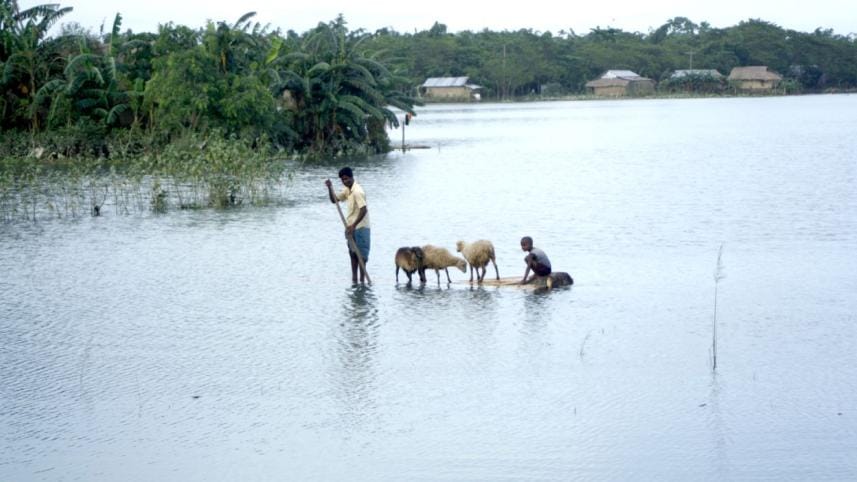Moving from development finance to climate finance

Prime Minister Sheikh Hasina has declared her intention to make Bangladesh graduate from being a Least Developed Country (LDC) within the next few years and the government has already formally notified the United Nations of this intent.
LDC is a UN-recognised category that brings with it certain privileges such as access to grants and low-interest loan funding under Official Development Assistance (ODA) from the developed countries. Bangladesh, as an LDC, has been getting several billion US dollars each year in such concessional ODA either through low-interest loans from the World Bank and Asian Development Bank or as grants from bilateral donors such as UK, Germany, USA, Denmark, European Commission and others.
Once we graduate from the LDC status, into lower-middle-income status, we will no longer be eligible to receive these concessional ODA funds and will have to take loans on open-market interest terms.
This means that we need to start planning for this transition straight away. Below are some ways in which we can plan to cope with the time without ODA and possibly replace it with climate finance.
Firstly, while we have been the recipient of ODA to the tune of several billion dollars a year, the total amount of global ODA from the rich countries—around USD 100 billion—is, in fact, shrinking. This is for a combination of reasons including the fact that giving ODA is difficult to justify during times of economic austerity in richer countries as well as the rise of right-wing political parties who explicitly oppose giving ODA. President Donald Trump, for example, has already slashed the US's proposed ODA through USAID and other UN bodies. Hence, even if we were not graduating from LDC status, ODA would be shrinking anyway.
On the other hand, the world of global climate finance is in fact growing with the upcoming pledged replenishment of the Green Climate Fund (GCF) to the tune of USD 100 billion a year, starting from 2020. These funds will be given to developing countries to tackle climate change, either for mitigation or adaptation, and will be in the form of grants or low-interest loans.
So even if Bangladesh is no longer an LDC, and hence no longer eligible for ODA, it will still remain a climate vulnerable country, and hence remain eligible for climate finance to tackle climate change.
However, the rules of accessing climate finance are not the same as accessing ODA, and hence Bangladesh has to learn to play by the rules of the "climate finance game" in order to get access to these funds. At a simple level, if accessing ODA is like playing football, then accessing climate finance is like playing cricket! Both games are played by teams of eleven players and involve a ball, but cricket is a much more complicated game. So to assume that since we are good football players we will also automatically be good cricket players would be wrong.
The government of Bangladesh appears to understand this game, and through the Economic Relations Division (ERD) of the Ministry of Finance (MoF) has been capacitating not only the public-sector institutions but also private-sector companies and NGOs to let them know how they can apply to access climate finance from the GCF.
There has already been some initial success as the Local Government Engineering Department (LGED) has been awarded USD 40 million as grant from the GCF, and another proposal from the Ministry of Women and Children Affairs is under consideration by the GCF. However, our aim should be for Bangladesh—through public-sector entities as well as the private sector and NGOs—to apply for and successfully compete to get hundreds of millions, if not billions of dollars a year, from the GCF from 2020 onwards.
If all the stakeholders are able to equip themselves to be able to play their respective roles properly, this should indeed be achievable.
Saleemul Huq is Director, International Centre for Climate Change and Development at the Independent University, Bangladesh.
Email: saleem.icccad@iub.edu.bd




Comments